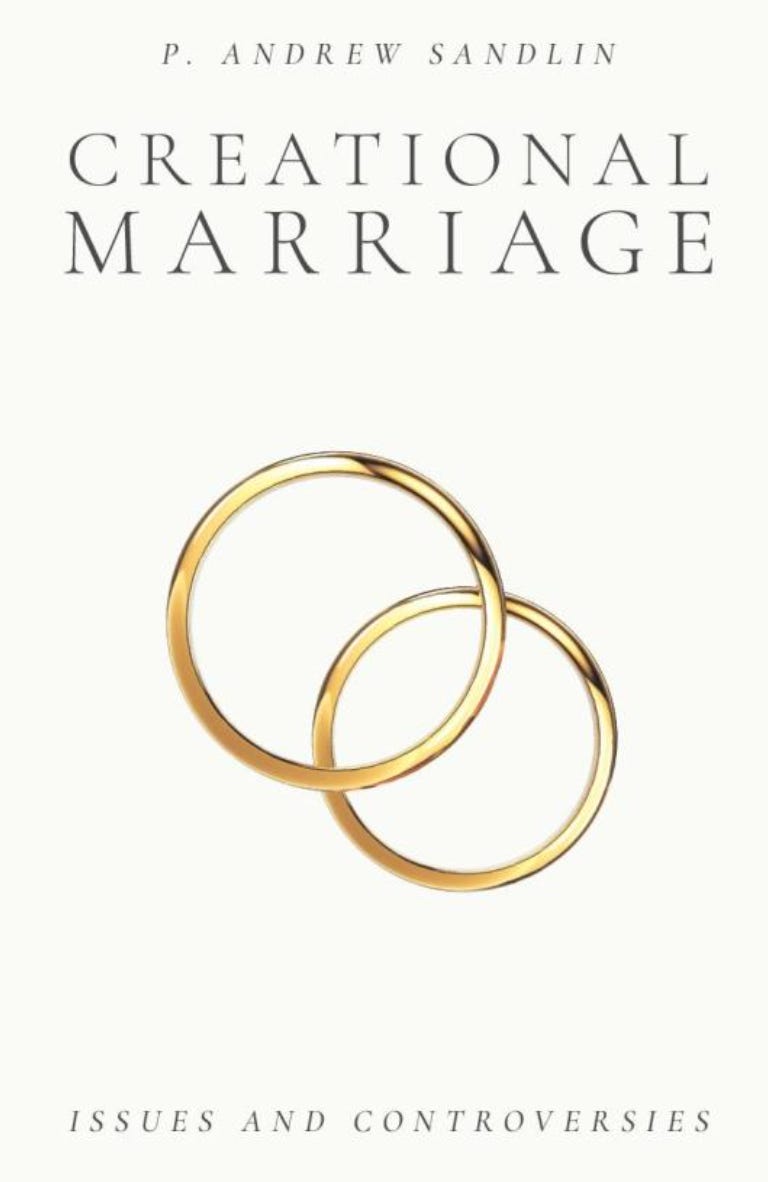
Christian Culture Versus Christian Nationalism
To champion the global advancement of Jesus Christ’s kingdom requires a paradigm far more comprehensive than and superior to “Christian Nationalism.”
Dear friends and supporters:
Last week Sharon and I returned from a divinely anointed but physically exhausting trip to the Mexico City area. I was addressing the Growing the Kingdom conference (led by my dear friends Gleb Dunn and his son Pastor Caleb), and privileged to meet many new friends, both Anglos and Hispanics. Few ministry opportunities give me greater satisfaction than meeting and standing shoulder to shoulder with Christians from different nations, races, and cultures.
Speaking of which, in our absence, a little brouhaha over a novel “Christian Nationalism” (CN) broke out in the backwaters of that narrow but contentious wing of Christendom, the American Reformed world. This shiny, new, but dangerous toy has been expertly critiqued by at least three Christian thinkers.
Critical Responses
Peter Leithart
First, Peter Leithart, Founder and President of the Theopolis Institute, drafted in his weekly email a direct, brief, and blunt response. It is worth quoting fully here:
Nations should be Christian. Every nation should be Christian. The U.S. should be Christian. So should Armenia and Angola, Afghanistan and Andorra, Australia and Brazil, and on down through the alphabet.
God commands kings and judges to bow to King Jesus, and this demand is inherent in the gospel.
Nations should bow to Jesus. Nations will bow to Jesus. The kingdoms of the earth have become the kingdoms of the Lord and of His Christ. God will fulfill His promise to Abraham, to bless every family of the earth.
This doesn’t make Christians “nationalists.” Nationalism is a political theory or program that makes the nation’s own good its primary aim. Christians must always seek the kingdom first.
Christians properly love our countries, but seeking the kingdom and its justice may require us to stand against our nation. Seeking the kingdom may make us look like traitors, as it did for Jeremiah.
Christian nations don’t make national interest their chief end. Nations too are baptized into the mission of Jesus. Baptized nations and kings submit their political aims to the aims of their King.
Nations become Christian through the witness, worship, and ministry of the church: when preachers preach the whole Bible; when churches gather at the Lord’s table with Psalms; when the church welcomes strangers, feeds the hungry, and clothes the naked; when members of the church diligently witness and obey in their families, neighborhoods, vocations, and citizenship.
Nations become Christian when the church and her members seek the kingdom. Thus, and not otherwise, nations become Christian.
Nations become Christian precisely when Christians are not nationalists.
You can be a Christian, or you can be a nationalist. You cannot be both. Thus Peter Leithart.
Kevin Johnson
The two other responses come from our own CCL cadre. The first is from Kevin Johnson, Senior Fellow of Technology and Global Development, finishing up PhD. studies in the Global Development program at Arizona State University. Kevin shows how the most popular iteration of CN (a book by Stephen Wolfe) unintentionally borrows from Critical Theory of Cultural Marxism. In this sense, it is what Francis Schaeffer would call a “form of the world spirit,” despite its desire to recover a political theory of premodernity. Kevin writes:
Wolfe presents post-Reformation Reformed scholastics precisely because he is appealing to a Reformed audience conditioned by the likes of the Davenant Institute and Richard Muller’s Post-Reformation Reformed Dogmatics to see a certain type of historical theology as acceptable sources. In other words, Wolfe needs Aquinas to ground his prelapsarian approach in something valuable to his readers. What better than a selective read of Reformed scholastics that purportedly borrowed from Aquinas and Aristotle? Wolfe’s sources are, true to form, very selective, postmodern in their appropriation since it is anachronistic to say they would endorse a Christian nationalism, and he also ignores other important voices in the various traditions that could be employed.
Brian Mattson
The most extensive, thorough, and, I might add, devastating assessment of CN emerges from the keyboard of our Senior Scholar of Public Theology, Brian Mattson. Brian argues that this entire project is doomed because it is biblically bankrupt, theologically superficial, intellectually shoddy, and existentially pernicious. Excerpts simply cannot do this review justice, but here are four that will provide at least a flavor:
From my point of view, since Wolfe does, after all, seem to believe himself biblically and theologically competent, readers ought to hold his paltry recourse to scripture against him. His habit—I’m sorry, it is impossible to call it that. What I mean is that when he does get around to actually quoting the Bible, which occurs by my count 16 times in a 475-page volume, he habitually quotes a single phrase or a few words in an incidental or purely illustrative fashion. There is zero exegesis of scripture or biblical interpretation of any kind in The Case For Christian Nationalism.
It’s biblically bankrupt. Then:
… Wolfe begins with a ready-made definition of “nation” and “nationalism” that comes from who-knows-where and only later considers how the Christian faith “modifies” it—the answer being, as it strangely turns out, that it doesn’t modify it at all. Indeed, on his terms Christianity by definition cannot modify it, because “grace does not destroy, abrogate, supersede, or undermine nature” (23). Since he has projected his construal of “nationhood” right back into the prelapsarian Garden of Eden (really, that is the entire thesis in a nutshell), it is therefore invulnerable to any alteration or modification by redemptive grace. That is what that exceptionally lovely and helpful theological phrase, “grace restores nature,” now comes to mean in the hands of Stephen Wolfe—but I am getting well ahead of myself. Wolfe’s “Christian nationalism” is just garden-variety nationalism taken from his own intuitions with an obvious assist from the first few chapters of Aristotle’s On Politics, involving a “Great Man” (31, 290), the “Christian Prince” (277), who is the “nation’s god”(287) and the “vicar of God” (290), and who is in charge of “ordering” everybody and everything to the “national good” (31). I half-expected him to announce that he’s volunteering for the job.
It’s theologically superficial. Next, consider:
This is a bloated, sprawling manifesto and there is, of course, much more one could examine: his unconvincing and incredibly brief speculation that the State is a prelapsarian institution; his assumption that a “nation” can be considered a “person” with a single will; his reliance on figures like Johann Gottfried Herder for his theories on race and nationality—Wolfe calls him a “Christian philosopher,” but he’s actually the font of a great deal of Germanic obsession with race (like that never caused any problems); one could engage his treatment of the right of revolution (it is very comforting—first he advocates installing a Prince with literally totalitarian powers [see pages 12-13], but if anything goes wrong we can always depose him); one might consult his analysis of the American founding; one could marvel at his full-throated defense of the magistrate enforcing both tables of the law (with its nifty two-step on how he can bring the Bible back into the conversation); one could also, if a glutton for punishment, examine entirely tedious and irrelevant rabbit trails in which he trashes Russell Moore and picks a fight with David VanDrunen; and then there is an insufferable Epilogue that consists of Wolfe sharing his expert opinion on his every hobby horse—education, the military, globalism, his thinly disguised sympathy for Vladimir Putin, masculinity, effeminacy, and something called a “gynocracy.”
The book is intellectually shoddy. Finally, Brian writes:
Why is it that, reflecting on place, people, and natural affections, exactly as recommended here, he [Adolf Hitler] came to [Stephen] Wolfe’s exact conclusions: (1) each of us has a people-group, (2) each people group can be conscious of itself, and (3) that each people-group has a right to be for itself? What does Wolfe have to say to that? Is he going to wheel the Bible back in at this point to provide guidance on this “earthly” matter of “natural” political arrangements? On what grounds?
The book is existentially pernicious. David Banhsen, CCL’s Senior Fellow of Economics and Finance, was correct, therefore, to state:
Friends, terminology matters. And when we start using terminology we shouldn’t use because of who we want it to upset, we end up making arguments we shouldn’t make to rationalize the terminology we shouldn’t have been using. There exists a perfectly sufficient theological basis for civic engagement, for cultural transformation, and yes, for evangelization of the nations, without succumbing to the unforced error of “Christian Nationalism.” Let’s be better. And yes, read Mattson’s unimprovable review of Wolfe’s inexplicably poor work.
Christian Culture, Not Christian Nationalism
To argue against CN is not, as Leithart noted, to oppose Christian nations. But Christianizing the nations is a goal and consequence of Christian culture, whose precedent far outstrips that of CN. Culture, as Henry Van Til once expressed it, is religion externalized. It is the Faith as it works itself out visibly and tactilely not just in family and church, but also the wider society, including education, art, science, architecture, entertainment, economics, and many more spheres, including politics.
CN, committed to the older scholastic and Roman Catholic nature-grace dualism, creates vast zones of life not directly governed by Jesus Christ or the Bible. In this way, they become operationally autonomous. Ironically, in creditably attempting to combat the bitter fruits of secularization — abortion, homosexuality, ideological feminism, and so on — CN labors to restore the very historical condition which laid the groundwork for that secularization. Along the way, CN advises some, at best, highly questionable racial theories, and an obvious statist tint.
In radical contrast, we Reformational Christians believe culture is the tail that wags the political dog. Christians should stay politically engaged in order to reduce the size of politics and increase the size of civil society — family, church, friendships, businesses, etc. When the state is radically minimized, culture can be radically maximized, just what the Bible envisions.
For 100 years conservatives have been losing spectacularly on the cultural battlefields and now, in a mad panic, are championing a coercive statism to strangle progressives and Marxists. … Newsflash: you win cultural battles on cultural battlefields, and if you try to win cultural battles on political battlefields, you will lose the culture.
I’ve noticed some overamped partisans of CN seem to assume that if you oppose it, you must advocate passivity in the face of aborticide, homosexualization, ideological feminism and Leftist “progressivism.” Nothing could be further from the truth. This is to make the common but catastrophic mistake of assuming that cultural problems have ultimate political solutions. They do not. Cultural problems only have ultimate cultural solutions, which is to say, religious solutions — religion is externalized.
To champion the global advancement of Jesus Christ’s kingdom requires a paradigm far more comprehensive than and superior to “Christian Nationalism.”
Culture trumps politics. Always and everywhere.
Will you consider a tax-deductible donation to CCL via PayPal or Venmo? Or mail a check to CCL, Box 100, Coulterville, CA 95311. God uses you to keep us going — and expanding.
Personal
Just now I’m gearing up for the annual CCL symposium December 3. Please contact me if you want to attend. A few more spaces are available. This is one of the most content- and communion-rich Christian events in the country. No screaming insults, no sophomoric one-liners, no cancel culture, no rude interruptions — just reasoned, respectful discussion, warm rapport, and delectable food.
I pray that each of you enjoyed your Thanksgiving and that God will bless you and your family as never before as we enter Advent.
Yours for Christ and his culture,
Founder & President, Center for Cultural Leadership
Now Available
This easy-to-understand book tackles head-on same-sex “marriage” and attraction”; female subordination in marriage; creational versus Christian marriage; complementarian and egalitarian versus Reformational marriage; the fallacy of “falling in love”; aborticide; eros in culture; the LGBT+++ agenda, the lust for singleness; the child-free life; “natural” law; and much more.
It offers nothing less than a bold, creational, Reformational view of marriage amid the present cultural chaos.
Get the book here.
More great stuff:
The Center for Cultural Leadership site is here.
My Amazon author page (print and digital) is here.
My I-Tunes sermons, lectures and podcasts are here.
You can find my sermons and lectures at my YouTube channel.
Sign up to get my blog updates here.
Here’s my Twitter feed.
If you want to get the free exclusive hard copy publication Christian Culture, please send me a Facebook private message.
The CCL phone number is 831-420-7230.
The mailing address is:
Center for Cultural Leadership
P. O. Box 100
Coulterville, CA 95311
















